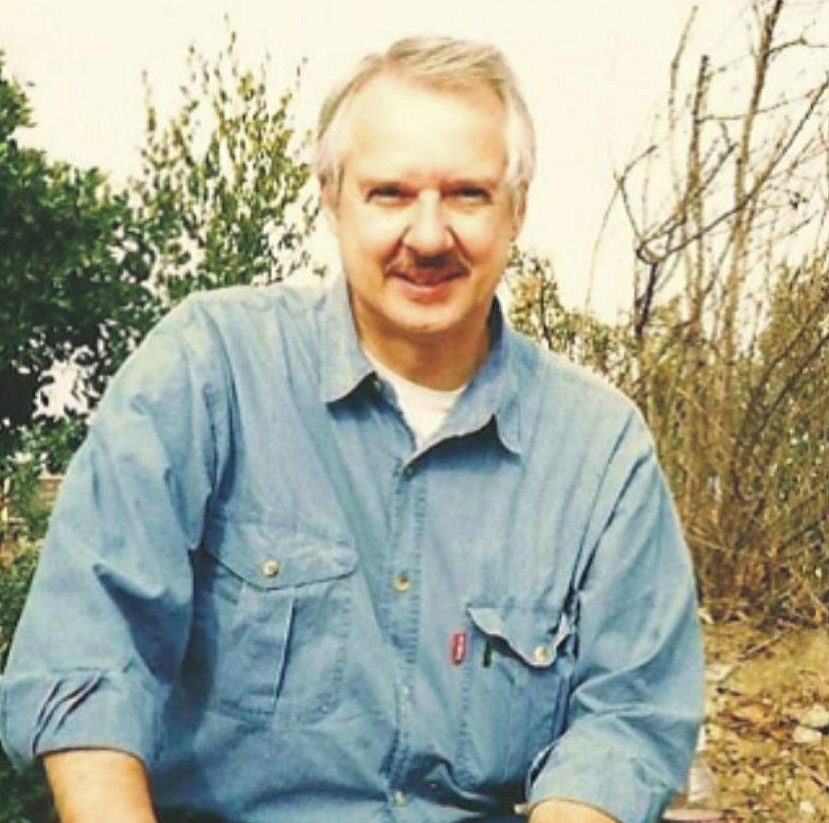The first person to receive a Ph.D. in economics from Colorado State University didn’t like the first economics classes he took as an undergraduate at Trinity University in San Antonio.
For David Fischer, who went on to a successful career as a resource economist, inspiration struck his senior year: He took an economics course from John Ise, a guest faculty member from the University of Kansas who was the first to write books on the economics of forestry, oil, and national parks.
“I just fell in love with it,” Fischer recalled. “He was a very entertaining lecturer. He loved Mark Twain, and his lectures had a lot of sarcasm and irony. He’s the man I credit with launching me into resource economics.”
Ise helped Fischer get a temporary park ranger job at Rocky Mountain National Park, but when Fischer arrived in Estes Park, he received notice to report for military duty. He served in the U.S. Air Force as a lieutenant in the Medical Service Corps, all the while reading books on water, soil, wildlife and land conservation.
“I used that time to teach myself natural resource policy,” Fischer said.

He pursued his master’s degree in economics at Michigan State before arriving at CSU in 1965 as the economics department’s first Ph.D. student. He was married with three kids and living on a research assistantship that paid him $300 a month. Rent was $95 a month, and he commuted to campus on a used bike that he had to buy in east Denver because there were no bike stores in Fort Collins yet.
At CSU the faculty allowed him to use every term paper as a contribution to his dissertation, which focused on recreational investments in the region’s U.S. Forest Service lands.
“I was a lot more motivated than I was as an undergraduate, because I knew how I was going to apply it,” Fischer explained. “The faculty recognized that I was an older, serious student, so they gave me the freedom to explore my dissertation interests and finish as quickly as I could, and I appreciated that.”
Being the first Ph.D. student in the program provided some of that freedom naturally.
“No one really knew what to do with me because I was the first one,” he said. “The culture at CSU gave me the freedom to develop in a way that helped me be successful later on.”
After earning his Ph.D. in 1968, he went on to a distinguished career in resource economics, about half of which was spent in other countries.
Two years after landing his first faculty job at the University of Rhode Island, he was hired by the University of Waterloo in Ontario, Canada, where he was one of only 10 resource economists in the country at the time. His other foreign appointments included faculty jobs in Norway, Austria, Mexico and Spain. In addition, Fischer has lived in France, Japan, Russia, Slovakia and Sweden.
“It gave me fantastic perspective on being a citizen of the world instead of an American,” Fischer explained. “I’m a Christian who was a legal immigrant in four countries, so I have strong empathy for immigrants and refugees. My foreign experiences made me who I am, because I had more opportunity in other countries than I ever could have in America.”
His expertise involves economic issues associated with natural resources. Among other accomplishments, he developed a framework for studying large-scale environmental accidents like oil spills and nuclear reactor leaks. Fischer has worked on issues involving wetlands, Arctic development, ocean hard mineral development, storm hazards, North Sea oil impacts, sandy beach access and beach erosion hazards. He has published 90 scientific articles and nine books, including a biography called Looking Down and Falling Up.
His time at CSU helped him understand the need for people from multiple fields to work together and push traditional academic boundaries.
“As a Westerner, you appreciate the wide-open spaces and opportunities to chart your own path,” Fischer says. “Being a resource economist was a way to move beyond economics.”
“Economists need to move their discipline beyond its boundaries. The greatest learning I ever did was at the edge of the discipline, working with others in different fields.”
– David Fischer
Fischer returned to campus Oct. 12, 2017 to give a lecture to students and faculty in the departments of Economics and Agricultural and Resource Economics. In his talk, he reiterated the need for transdisciplinary work.
“Economists need to move their discipline beyond its boundaries,” he said. “The greatest learning I ever did was at the edge of the discipline, working with others in different fields.”
Fischer said afterwards that his time at CSU was impactful.
"My days at CSU were my most intense of my life, because they were consumed with constant study and uncertainty over the outcome,” he said. “As the first to go through to a doctorate there, only my faith in God and the hope I was given by God kept me on my path."
Learn more about the Department of Economics.
